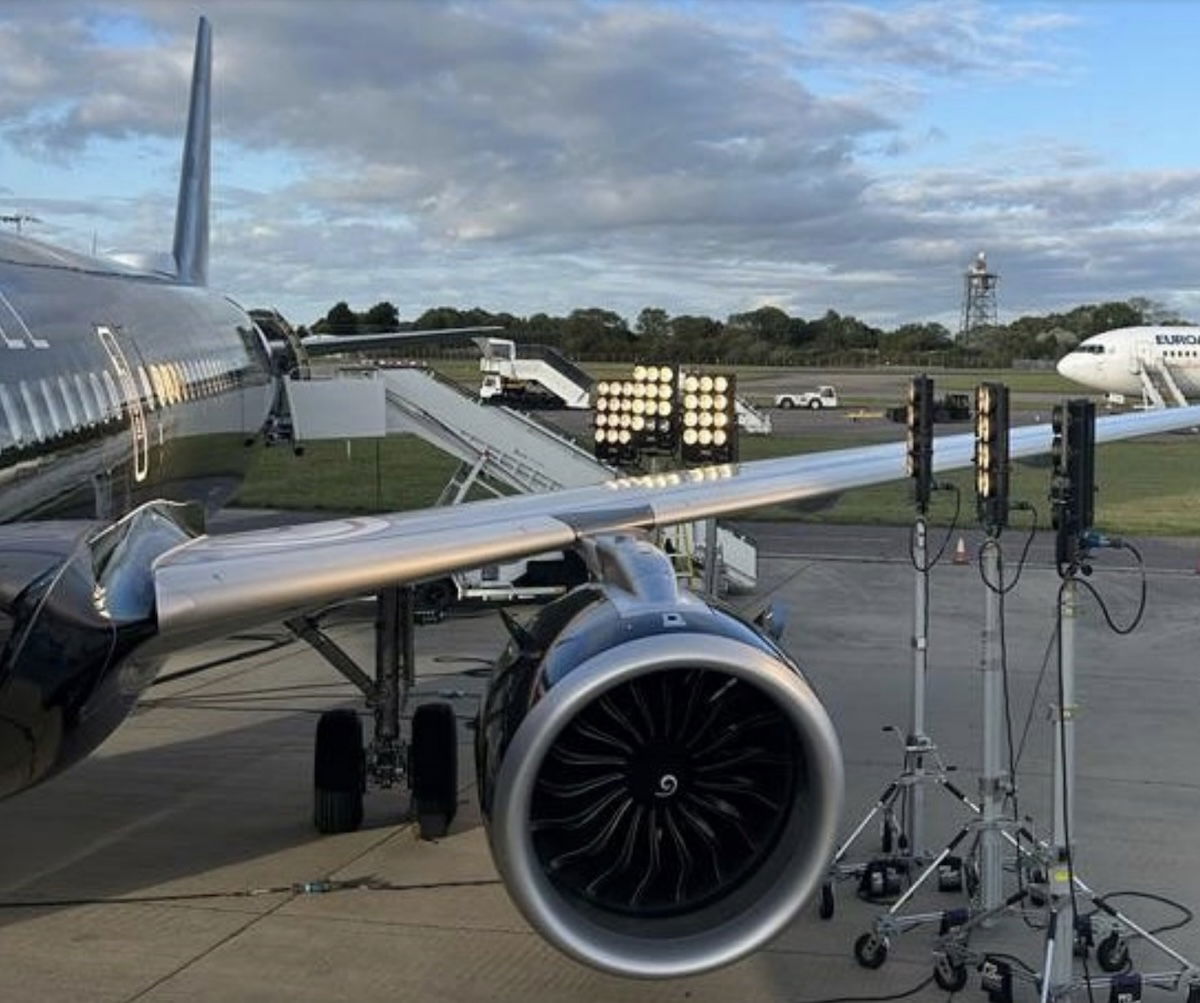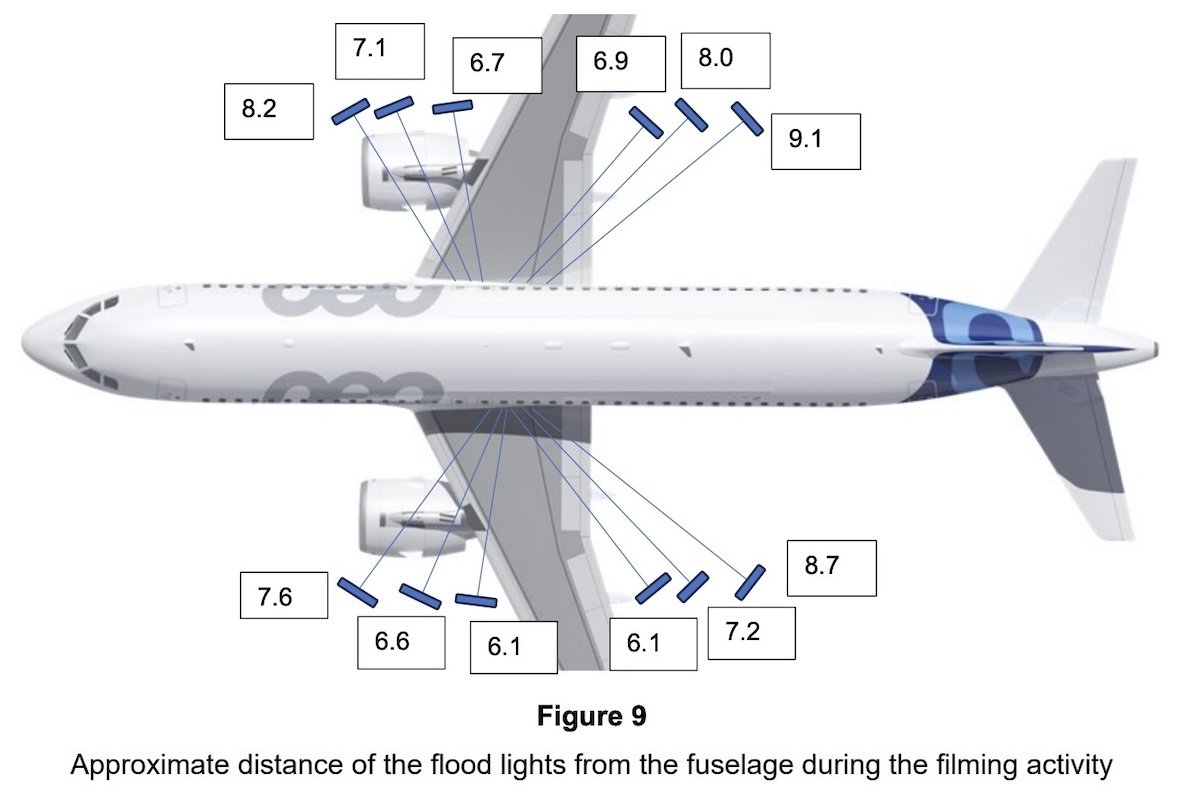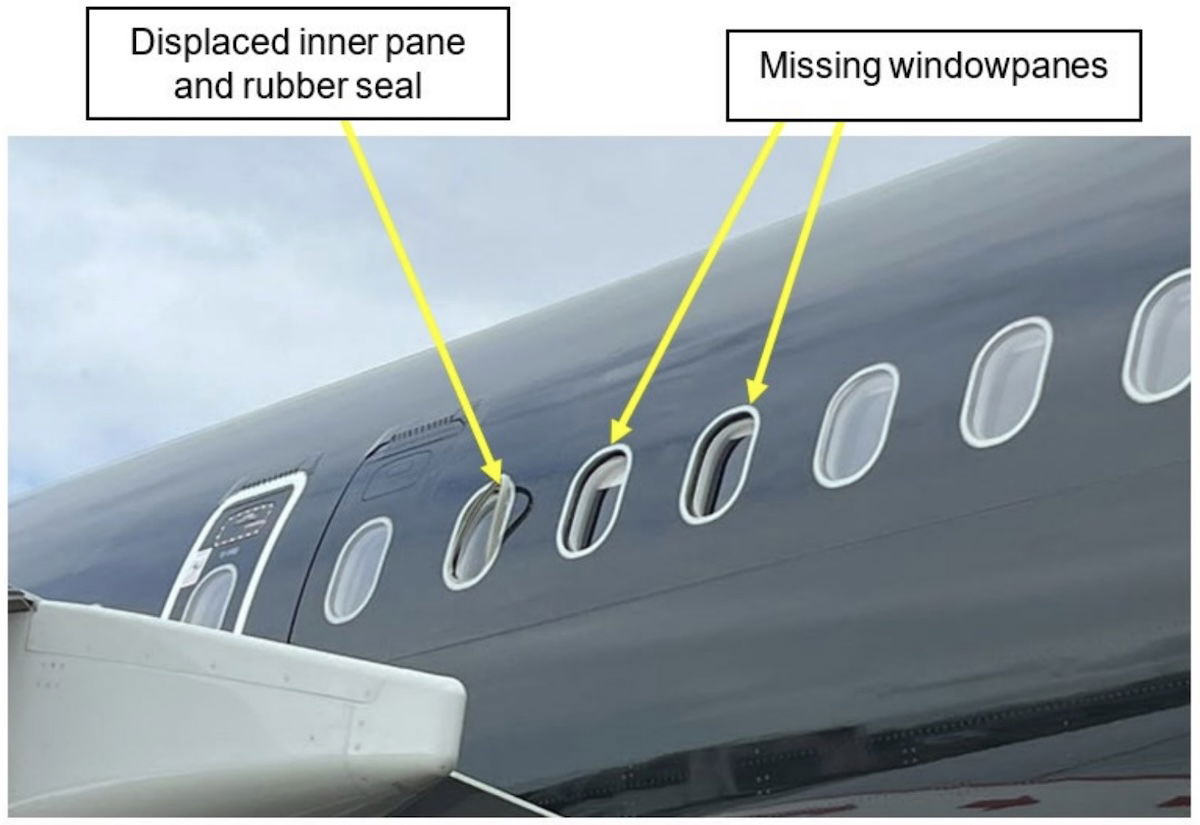Several weeks ago, I wrote about how an Airbus jet mysteriously lost a few windows after takeoff, in what has to be one of the most bizarre incidents we’ve seen in quite some time. There’s an interesting update, as an investigation has now been performed into this incident. Let’s first cover the background, and then look at what investigators found.
In this post:
Titan Airways A321LR returns to airport due to missing windows
As reported by The Aviation Herald, the British Air Accidents Investigation Branch (AAIB) has investigated an event that happened on October 4, 2023. It involves a roughly two year old Titan Airways Airbus A321LR with the registration code G-OATW.
For those not familiar, Titan Airways is a British charter airline with a fleet of Airbus A320-family aircraft. The airline operates flights for everything ranging from the British government, to Four Seasons. Actually, the jet involved in this incident was the one in the “TCS World Travel” livery, which operates all kinds of luxury travel journeys. I believe the aircraft has the below snazzy interior.
Anyway, the aircraft was scheduled to fly from London Stansted Airport (STN) to Orlando International Airport (MCO) with 20 people onboard, including three pilots, an engineer, a load master, six flight attendants, and nine passengers who were employees of the company. There were no “regular” passengers, as the jet was repositioning for its next contract. The aircraft departed runway 22, though after takeoff, the crew noticed excessive noise in the cabin.
So the decision was made to stop the climb at around 15,000 feet, and to return to the airport. The plane ended up landing back at Stansted Airport on the same runway, around 37 minutes after it departed.

Once back on the ground, it was discovered that three windows in the cabin were missing or loose. Furthermore, there was damage to the left hand stabilizer, as one of the windows that came loose hit the stabilizer.
Prior to this flight, the aircraft had been operating for the UK government for well over a year, with a different registration code. The plane had the registration code G-GBNI, and weeks earlier King Charles even flew on this exact plane.
That government contract was finally done, and from September 23 through October 2, 2023, the plane had been at London Southend Airport (SEN) for maintenance, repair, and overhaul, as the plane was being transferred from the UK government back to standard Titan Airways operations.
The plane lost windows due to a photoshoot
The AAIB has now published its findings regarding what caused this incident. As it turns out, the day before the flight, the aircraft had been used for filming on the ground. External lights had been used to shine through the cabin windows, to give the illusion of a surprise.
The lights were pointed in the direction of the right windows for a period of over five hours, with the lights pointed at the windows just behind the over wing exits. They were then pointed in the direction of the windows on the left for a period of around four hours.

As it turns out, these lights were so powerful that the aircraft windows sustained thermal damage and distortion because of elevated temperatures. The lights were positioned closer than they should have been, many within a range of six to nine meters of the fuselage.

The investigation notes that this ended uneventfully because the damage was discovered at a low altitude, though “a different level of damage by the same means might have resulted in more serious consequences, especially if window integrity was lost at higher differential pressure.”

On the plus side, at least this issue wasn’t due to any shortcomings with maintenance. When we first heard of this incident, the story of British Airways flight 5390 came to mind. In 1990, a British Airways aircraft suffered an explosive decompression, whereby the windscreen panel separated from the aircraft frame, causing the captain to be partially ejected from the aircraft.
It was determined that the windscreen had been installed just 27 hours earlier, and 84 of the 90 bolts used to secure the windscreen were 0.026 inches too small in diameter.
That’s not what was going on here, though, and the whole incident was also a lot less dramatic.
Bottom line
An Airbus A321LR operated by Titan Airways was supposed to fly across the Atlantic recently, but ended up having to return to the airport due to excessive noise in the cabin. It was determined that three of the windows were either missing or loose, and one even hit the aircraft’s stabilizer. The plane had just completed a contract with the UK government, and was about to start flying some high-end charter contracts.
An investigation has now been performed, and as it turns out, this incident happened due to a photoshoot that took place the day before the flight. Some very strong lights were used, which caused damage to the windows. Investigators say that it’s a good thing this was discovered at a fairly low altitude, or else the outcome could have been much worse.
What do you make of this incident?





Lovely to see the jet parked at Nadi airport this morning
Why does this happen to every plane then since they get hours of direct exposure to the sun every day especially when they’re flying?
1 The sun is less powerful than multiple of these very powerful film set lights.
2 The lights have been focused on the same spot for hours, won’t happen in the air like that.
3 The air at flying altitude is cool and thanks to the airplane flying, heat is not accumulating.
4 Most jets don’t have a black livery which exacerbated the issue for Titan Airways.
So, what was the photo shoot for?
To give the illusion of a surprise?
Sunrise, maybe?
Yeah, I was wondering what that meant too.
The windows fall out…SURPRISE!
Am I the only one who thinks something must be very wrong with the way windows are built if they can be damaged by shining light on them?
You do realize that planes have lights on inside the cabins and they don’t effect the windows at all. Planes also stored in hangers or at airport gates have direct light shining on it with no problems at all.
The logical conclusions is that some lights are hotter than others. So you should be able to connect the dots on your own
This.
I read the report and looked at the specification sheet of the light fixture - each halogen lamp draws 1,000 watts and looking at the picture there are 12 per stand. That's a ton of heat (not to mention electricity). Curious why the didn't use an LED fixture which burn significantly cooler and use less power...perhaps it was a light color objective.
Regardless this is a crazy story, thanks for sharing Ben!
Similar photoshoot related melting incident happened to the first B787 of Turkish Airlines as well, I recall.
Now I'm concerned about sunlight, heat affecting plane windows.
All those planes stored in the desert.
The temperature output onto metal of these lights can easily be 4500-5000 Kelvin, not nearly as hot as the sun.
This never happened with their 757s. Stronger, American and better built.
Oh give it a rest, Hank, you risible little halfwit.
Yes, American planes are immune to thermodynamics *rolls eyes*
It never happened with the Spirit of St. Louis either. They just don't build them like they used to.
I'm glad the investigators were able to shed some light on the cause.
Wah wah. Good pun.
Logged in only to give this one a Like.
What absolute idiotic dinks. I trust prison time shall be sentenced to those involved with this recklessness.